Wednesday I walked on my own two wobbly, neuropathy-stricken feet from the hotel, which was just north of the new central station, into town, accompanied by about half a dozen others. Just a few blocks from the very center of Vienna, the Stefansplatz, we found a small watering hole which subsequently became my regular haunts.
When I left after appx. four hours, I'd had exactly one sandwich and one large glass of Almdudler, an Austrian soda with a surprisingly good flavor. My colleagues had had six pints of beer and four shots of liquor... each. I believe there was some white wine in there as well.
The next day I got up bright and early and after a hearty breakfast I again walked downtown to attend a guided city walk. I was in the group where the focus was to be on relatively modern Austrian history, but more than half the time was still spent on old stuff. I knew most of what was told to me on an intellectual level, but seeing the places and hearing a native talk about these things, gave the information a whole other dimension.
It's difficult when you're from a tiny, insignificant nation on the edge of Europe to fathom the cosmopolitan nature of Vienna; the history and culture and degree of sophistication (and perhaps a tough of arrogance) of the population and how all this came crashing down around their ears.
First, one of the major powerbrokers of Europe and the personal domain of the ruling Habsburg family, The Holy Roman Empire (which, just to add some confusion, was mainly German) came to an end in 1806, as more and more of Europe wanted independence from the late 1700s on and the Austrians got bitchslapped by Napoleon at Austerlitz.
Its successor, the Austrian Empire (later the Austrian-Hungarian Empire) reasserted itself as a major power until the whole thing came crashing down after the First World War, which began after a Serbian eejit murdered the Empire's crown prince and the even worse eejits, the Russians, had to stick their greedy little noses into other people's affairs with disastrous results (for a recent example, see Putin, Vladimir). Anyways, the borders from that little event still haven't settled and it can be argued that both the 2nd Word War and most of the more recent shit going down in the Balkans can be traced back to the Empire and the way it was dissolved.
Vienna was dirt poor and full of refugees after World War I, and most of the city was bombed to pieces during WW2. The Imperial capital that once was the fifth most populous city in Europe, the place from which large parts of the continent and for a while even South America, was run, was now a mid-sized town in a rather smallish and utterly insignificant country on the edge of civilized Europe. Vast tracts of the old empire lay behind the iron curtain, under the crushing burden of Communism for almost 50 years.
In short, I'm not sure that I'm intellectually and emotionally equipped to understand the mentality and the self-image of the population in a country and a city that went from a contender for the title of capital of Europe, to basically a museum in a generation or two. Hitler, an Austrian by birth, walked the streets of Vienna while trying to make it as painter, and he grew to hate the Habsburgs and the international flavor of the empire and of course the wealth and power he saw on display while he himelf lived the cliche of the starving artist. Nothing good came of that experience.
Still, let me say something about the present state of Vienna. While not (at least to my mind) quite up to the standards of Prague, which is still the most beautiful city in the world (TM), Vienna is very, very beautiful. There are literally tons upon tons of old, momumental buildings, and of monuments to long forgotten wars, battles, kings and generals, and just walking around downtown you definitely get a feel for what it must have been back in the day - and I didn't even get around to seeing some of the most famous castles, such as the Schönbrunn. I've also seldom been to a place of size where I so immediately got a feel for the outlay of the city and how to get from A to B. I can heartily recommend a trip here, and I'm definitely going back to explore further.
The Viennese themselves are a mix of Austrians and people from all over the old Empire. There are lots of people with Czech, Polish or Hungarian background, it still has an important Jewish congregation and in addition they've recently gotten a lot of people from the former Yugoslavia and Arabs too. I still can't quite understand why they've collectively decided that all the grocery shops need to close at 8PM on weekdays and 6:30 on Saturdays, but that's their loss.
It is a fairly relaxed city with very little crime for its size. The Austrians don't believe in public health
This monumental building is the Staatsoper, the national opera house of Vienna. It was bombed to smithereens during WW2, but quickly rebuilt, as the local population (or at least their benevolent politicians) couldn't go for long without culture.
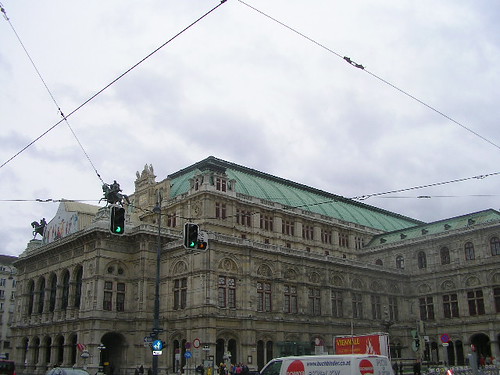
War monument just behind the opera house.
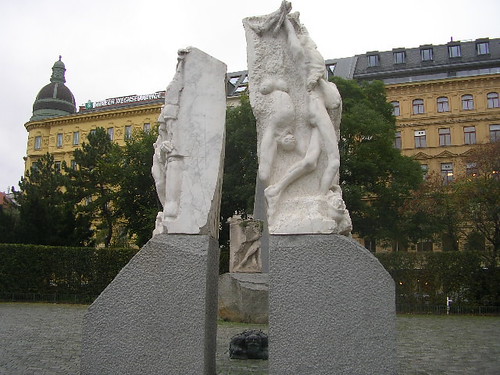
In the 30s, Jews were made to scrub the streets. Often, onlookers would cheer and throw stuff at them. I never said the Viennese were delightful people.
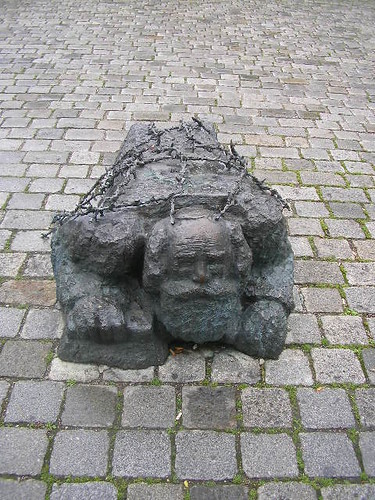
The headquarters of the Spanish riding school, where the famous Lipizzan horses can be found. I believe the stables are just across the road.
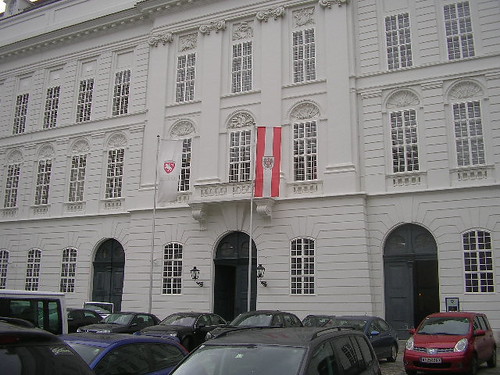
From this relatively modest building, an empire was run.
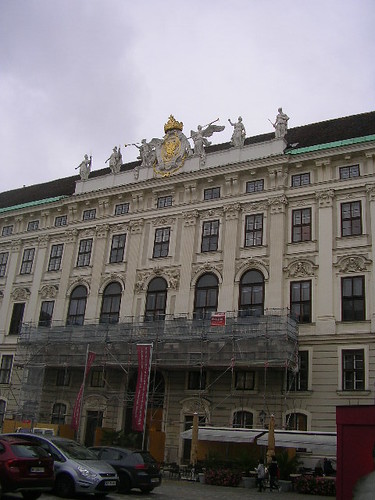
The residence of the current President of Austria.
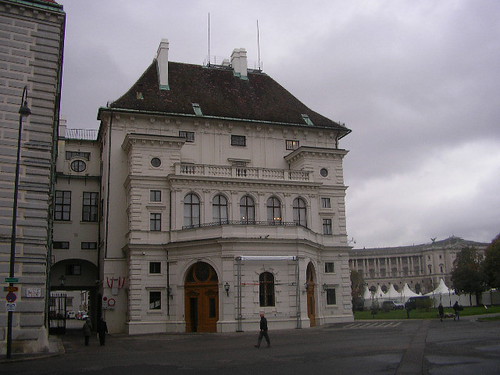
This enormous building is the Austrian National Library. Never let it be said they don't appreciate culture down there.
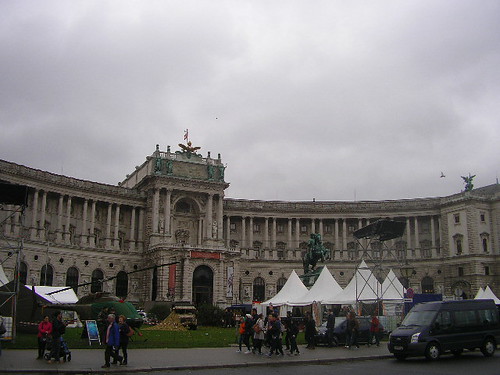

No comments:
Post a Comment